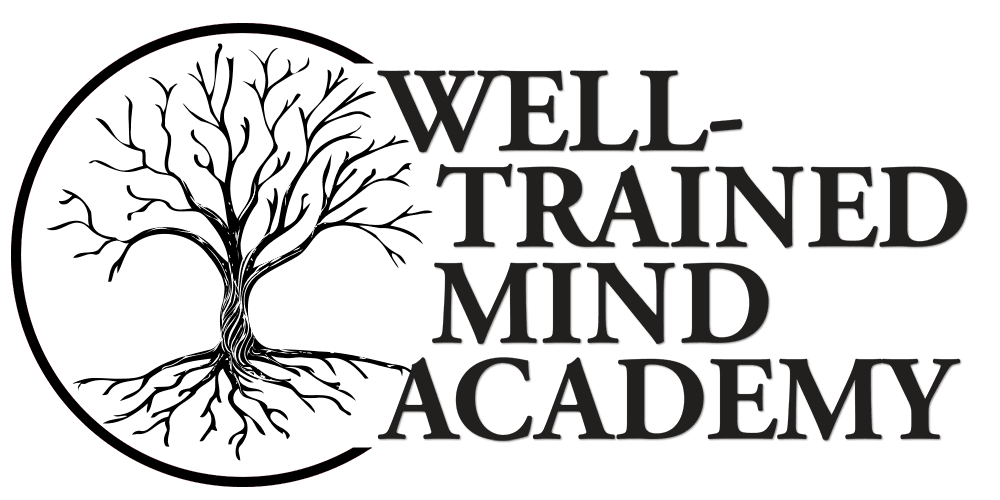To Be A Good Scientist, You Have To Be A Good Writer: A Talk with Andrew Jordan
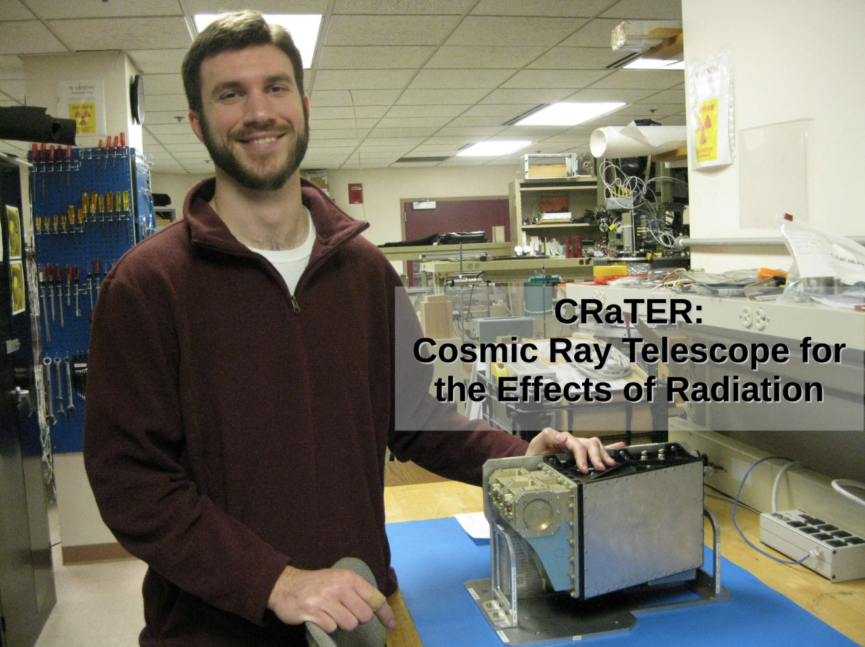
Dr. Andrew Jordan, research scientist at the University of New Hampshire’s Institute for the Study of Earth, Oceans, and Space and co-investigator on NASA’s Lunar Reconnaissance Orbiter Mission, has a surprising piece of advice for aspiring scientists: focus on writing. Dr. Jordan spoke with our Well-Trained Mind Academy cohort students earlier this year about what it takes to succeed in science. Students didn’t find his listing of calculus and biology as unusual when talking about high school science curriculum and a path in STEM. However, his emphasis on the importance of writing was surprising to some. During this talk with Andrew Jordan, students learned that scientists are professional writers, and almost all career scientists spend a good deal of time writing.
Contents
Writing and Science Go Hand in Hand
Dr. Jordan used his own career to talk about what is needed to be a good scientist. His specific interest in astronomy started when his dad showed him the stars through binoculars one night in their family’s backyard. In high school he took math and science courses every year. While his interest in science was strong, he wasn’t the strongest math student. When he got to college his advisor looked at his math score on the SAT and was less than impressed. But then something interesting happened: his advisor circled his verbal score, which was quite good, and said “That’s the score that shows how well someone will do in college.”
The Path to a Fulfilling Career in the Sciences
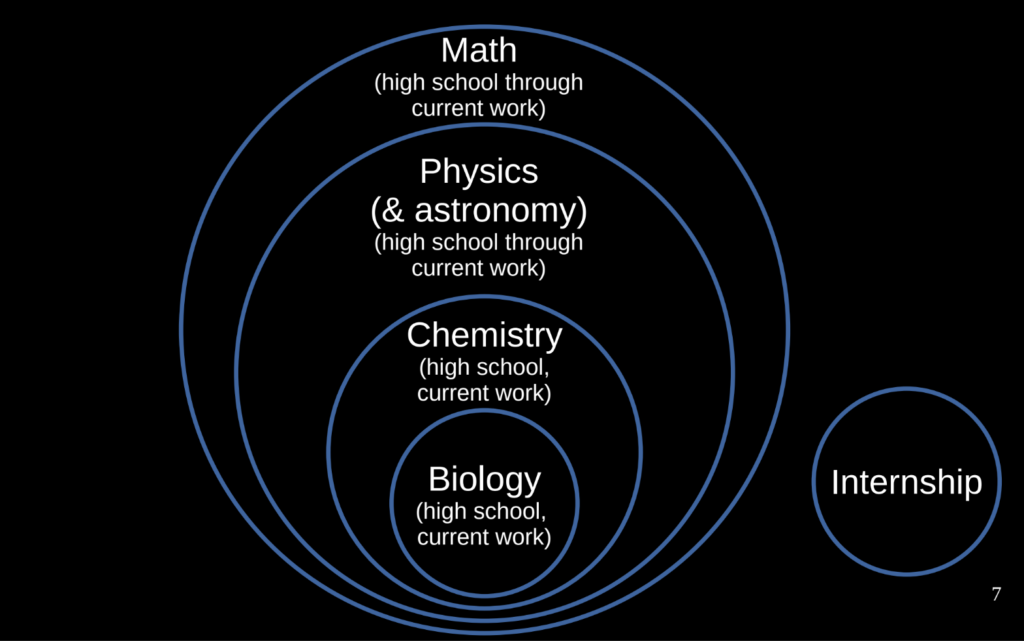
So what education path does someone take who is interested in studying astronomy professionally? Dr. Jordan majored in physics. He told our Well-Trained Mind Academy students that having a background in physics gives someone a little more flexibility when deciding in which area of science they want to specialize. He also chose to minor in math and astronomy. Dr. Jordan then pursued an advanced degree in astronomy at Boston University. As he spoke, he stressed to our students that getting an internship during college would help them figure out what life would be like as a scientist, and would also help their job search because of connections made in the field. Dr. Jordan never completed an internship himself and was still able to have a successful career. However, he stressed to students that an internship can significantly help them as they look for that first job. Now he’s a professional scientist working on space radiation. He also works with educators to help them better teach science.
Dr. Jordan took a lot of advanced math classes in college and graduate school, but in his everyday work he finds himself using algebra, trigonometry, and calculus most frequently. He said that if he was doing more theoretical physics, the math would be a lot harder. Though he only took chemistry once in high school, he does do some chemistry in his day-to-day work. Any planetary science requires some organic chemistry and even some biology.
The Importance of Writing in Science
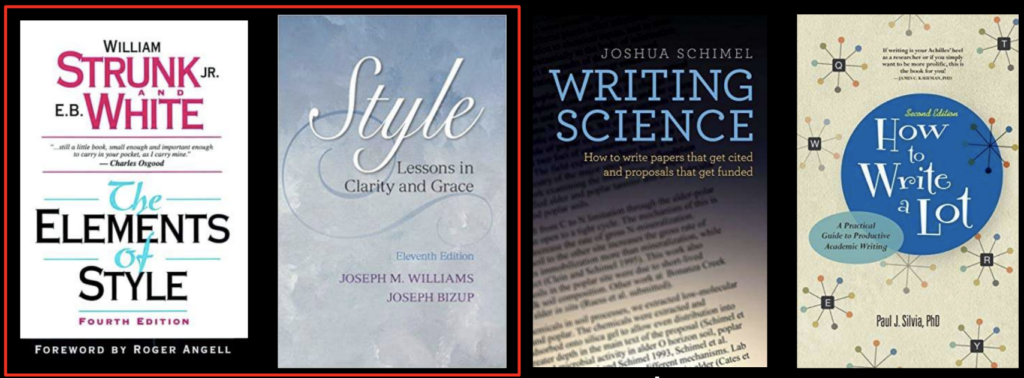
What Dr. Jordan does the most as a scientist is write. His favorite books about writing are The Elements of Style, Style: Lessons in Clarity and Grace, Writing Science, and How to Write a Lot. Dr. Jordan writes papers, proposals, and conference posters. Clear and concise writing is essential for professionals in the sciences, where hundreds of nuanced subsects of science require their own research and specific knowledge. Every time someone begins working in even just a slightly different area of science, a lot of research and reading is required to understand that subject. If the writing isn’t clear, it is very hard to understand how all the pieces fit together.
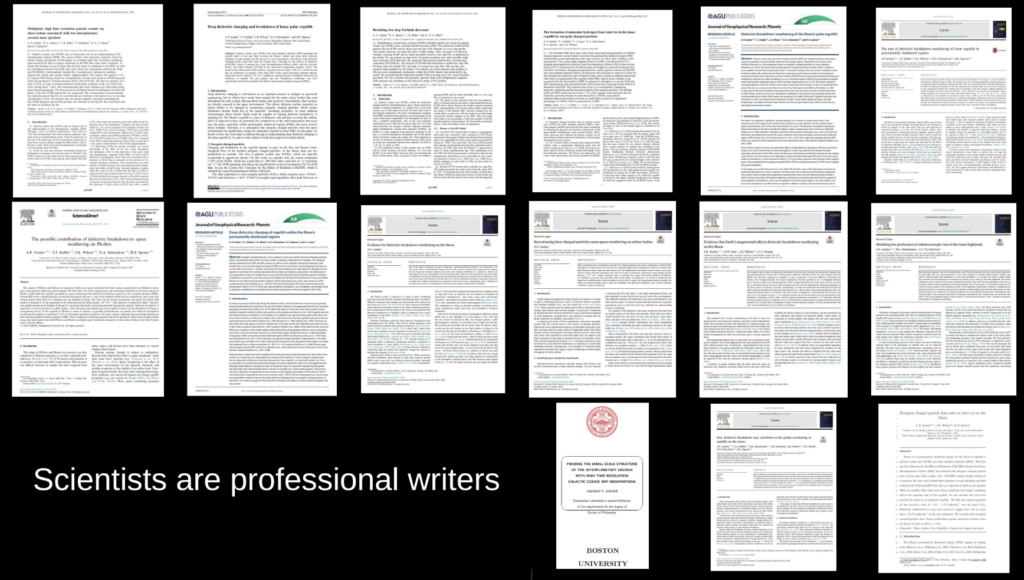
Dr. Jordan writes and publishes at least two papers a year. He says papers are the bricks of the wall of science that is being built. Scientists present their work at conferences, often several a year. They create posters that explain their work, and they talk about their findings with interested viewers. The biggest meeting Dr. Jordan attends is the American Geophysical Union, which has over 25,000 attendees. He says public speaking practice is key for good communication. Another important aspect of science writing is proposal writing. Proposals bring in grant money. It is this kind of persuasive writing that convinces people to fund your work.
Advice to Future Scientists
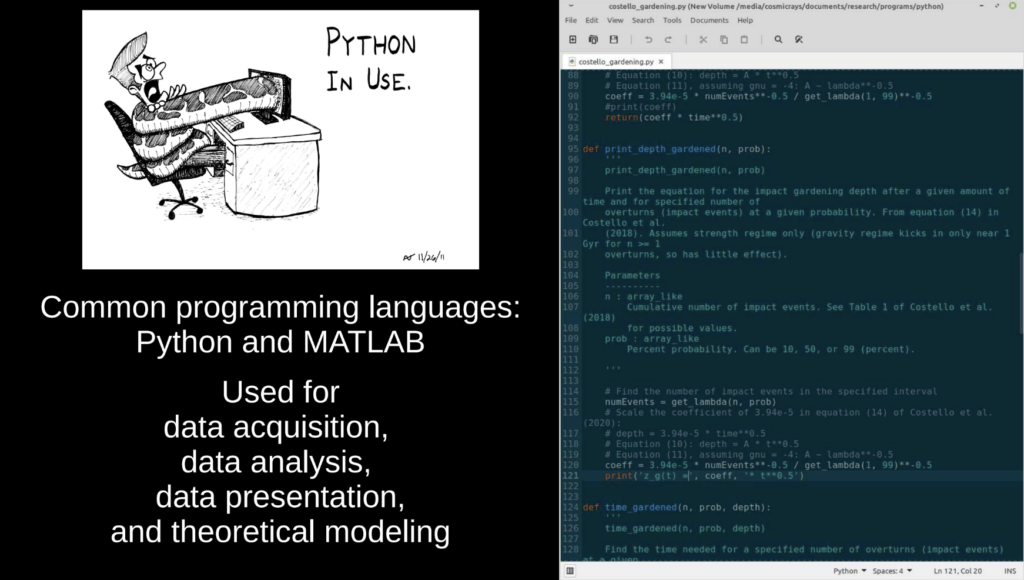
Two other things Dr. Jordan would like future scientists to know: 1) take some programming when you can. He uses programming, like Python and Matlab, to perform his research. He writes his papers in a program called Latex, which is hard to use but immensely beneficial because of its ability to format images and keep his works cited organized.
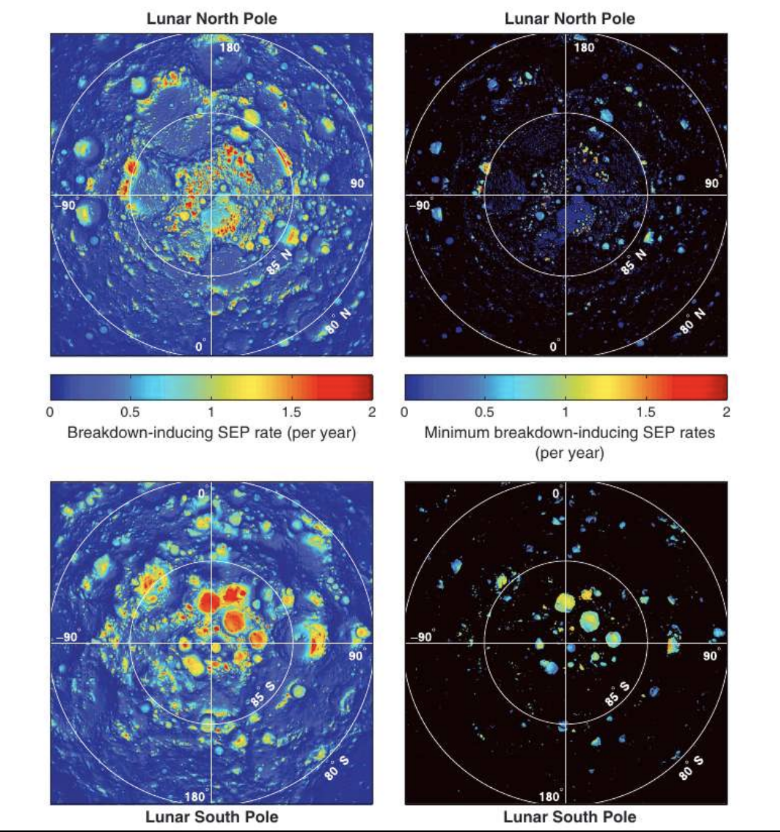
And speaking of images, he says 2) Don’t forget about art. Art helps you to communicate your data to readers. In addition, sometimes scientists get to have fun with drawing as part of their career. For example, Dr. Jordan created an educational cartoon that was approved by NASA for teaching about cosmic rays.
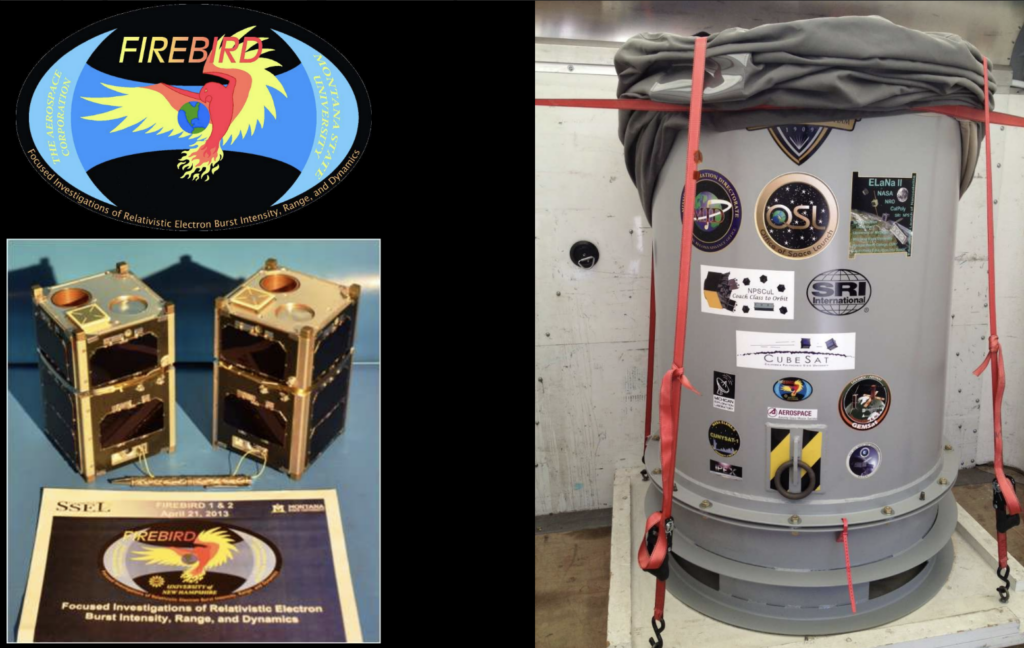
Finally, Dr. Jordan says that every scientist has at least one coffee mug with a logo on it, and it is usually a logo created by the scientist. For every mission a scientist works on, a visual representation of their team is needed for the body of the instrument.
For aspiring scientists, Dr. Jordan’s last piece of advice is to take time to think. He calls it “Parker Time,” after the great scientist Eugene Parker, who spent a few hours a day staring at a blank wall just to think. This is a practice that Dr. Jordan has taken up as well. “Parker Time” is essential, not just for scientists, but for all thinkers. No phones, no computers – maybe a pencil and paper for jotting down ideas – but that’s it.
A Talk with Andrew Jordan: Application for Well-Trained Mind Academy Students
Dreaming about becoming an astrophysicist or a biochemist probably means that you are already loading up on classes in the science and math departments. But the talk with Andrew Jordan revealed that math and science are not the only disciplines that students must build their skills in throughout their rhetoric years in order to become competitive in the field. Dr. Jordan’s experience shows that clear communication in the sciences becomes paramount, especially when working with complex concepts. So too is flexibility, and perseverance; skills that keep showing up again and again through our speaker talks. Maybe during your next session of “Parker Time,” you can reflect on how writing, programming, and art skills, along with the ability to take time to think, are all essential for success in STEM.
